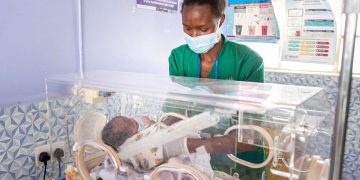By Ivyn Kipruto
When the Social Health Authority (SHA) announced the overhaul of Kenya’s health insurance system earlier this year, hopes were high that it would mark the beginning of a new era in equitable healthcare.
Today, as cancer continues to claim thousands of lives annually, SHA is once again under the spotlight this time reaffirming its commitment to making cancer treatment accessible and affordable for all Kenyans.
Cancer has become one of the country’s most pressing public health challenges. For many families, a diagnosis often signals not only a battle for life but also financial devastation. The high cost of chemotherapy, radiotherapy, and life-saving drugs has left many patients unable to complete their treatment. But under the new Social Health Insurance (SHI) scheme, SHA says it is determined to change this narrative.
“Our focus is to ensure that Kenyans receive the care they need without undue financial burden,” the Authority said in a statement. “Our core mandate is to improve health outcomes and provide financial protection in line with the right to health and universal health coverage.”
The assurance comes amid rising concern from patients and advocacy groups over cancer benefits and tariffs under the SHI. In recent weeks, the Kenya Network of Cancer Organizations (KENCO) presented a memorandum to SHA outlining areas that require urgent attention from treatment limits to delays in reimbursements.
SHA welcomed the move, describing it as a sign of active civic engagement in the country’s health reform journey. The Authority also revealed that a meeting with KENCO representatives is planned for early next week to discuss how to strengthen oncology care and improve benefit structures.
At the heart of these discussions is the Benefits Package and Tariffs Advisory Panel (BPTAP), which was recently gazetted to review and update benefit packages. SHA said the panel is already examining the oncology package to expand coverage and ensure that it reflects the real cost of treatment.
“The benefit package is not static,” the Authority explained. “It is reviewed regularly, guided by data, clinical evidence, and patient feedback to remain responsive to evolving health needs.”
Already, some positive steps have been taken. In April, SHA raised the oncology package limit from KSh 400,000 to KSh 550,000, giving patients more breathing space to continue their treatment without abrupt financial strain.
Beyond the benefit expansion, SHA is also pursuing partnerships with hospitals, medical associations, and pharmaceutical companies to reduce the cost of essential drugs. One notable achievement is its collaboration with pharmaceutical company ROCHE, which led to a drastic price reduction for the breast cancer drug Herceptin from KSh 120,000 to KSh 40,000. This move has significantly improved access for patients battling HER2-positive breast cancer, one of the most aggressive forms of the disease.
For many patients and caregivers, such developments offer a glimmer of hope. “When treatment costs are reduced, survival becomes possible,” says a Nairobi-based oncologist who requested anonymity. “We’ve seen too many cases where patients give up not because the disease is unbeatable, but because they can’t afford to keep fighting.”
SHA insists that these initiatives are part of a broader national effort to build a more inclusive, efficient, and sustainable healthcare system. The reforms aim to replace the gaps left by the now-defunct National Health Insurance Fund (NHIF) and align Kenya’s healthcare financing model with the principles of universal health coverage.
As the Authority moves forward, it is calling for continued dialogue and cooperation among all stakeholder’s patients, medical professionals, advocacy groups, and policymakers.
“We empathize deeply with all patients and families affected by cancer and appreciate the role of advocacy groups in highlighting patient experiences,” SHA stated. “We remain committed to ensuring that no Kenyan is left behind in accessing lifesaving care.”
For thousands of Kenyans living with cancer, these commitments could mean the difference between despair and survival. While the road to universal, affordable cancer care remains long, SHA’s renewed pledge and its tangible steps toward cost reduction and benefit expansion signal a hopeful shift in Kenya’s fight against one of its deadliest diseases.














